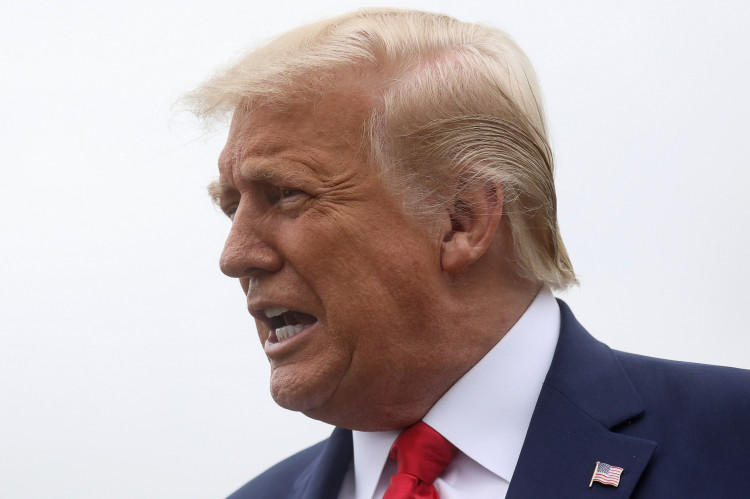Efforts to prevent a government shutdown unraveled on Wednesday after President-elect Donald Trump abruptly rejected a bipartisan funding proposal, demanding tougher negotiations just days before the deadline. The move has thrown Congress into chaos as lawmakers face the prospect of a shutdown heading into the holiday season.
Speaker of the House Mike Johnson, R-La., who had spearheaded the original deal, now faces mounting pressure to craft a new plan that satisfies both Trump's demands and the divided House. "Republicans must GET SMART and TOUGH," Trump declared in a statement with Vice President-elect JD Vance. The president-elect called for a streamlined bill and controversially tied it to raising the national debt ceiling, a historically contentious issue among Republicans.
The rejected funding plan would have extended government operations at current levels through March 14, 2025, while allocating $100 billion in disaster relief for states hit by Hurricanes Helene and Milton, as well as $10 billion in economic assistance for farmers. It also included funding for rebuilding Baltimore's Francis Scott Key Bridge and transferring federal land for a potential new stadium for the Washington Commanders.
The bill, however, faced fierce criticism from conservative lawmakers and influential allies of Trump, including billionaire Elon Musk, who heads the Department of Government Efficiency (DOGE). Musk condemned the spending plan as bloated and warned lawmakers, "Any member of the House or Senate who votes for this outrageous spending bill deserves to be voted out in 2 years!"
Musk's comments resonated with Republicans skeptical of additional federal spending. Rep. Chip Roy, R-Texas, echoed the sentiment, saying, "We're just fundamentally unserious about spending. If you can't shrink the government, you can't live free."
Adding to the turmoil, Trump's demand to link the funding plan to the debt ceiling has complicated negotiations. The debt limit, set to expire in 2025, is a critical issue for the incoming administration, with Trump insisting it be addressed before his January 20 inauguration. "This is a nasty TRAP set in place by the Radical Left Democrats!" Trump wrote on Truth Social, warning Republicans not to fall into the trap.
Democrats, meanwhile, slammed the GOP for backing away from a bipartisan deal. House Democratic Leader Hakeem Jeffries accused Republicans of "holding the government hostage" and warned of the consequences of a shutdown. "House Republicans have been ordered to shut down the government and hurt everyday Americans all across this country," Jeffries said.
Johnson, who has struggled to maintain unity among House Republicans, defended the original plan. At a press conference, he cited the necessity of disaster relief and economic aid, describing the bill as a "stopgap funding measure to get us into next year when we have unified government "
The proposed funding deal included a controversial provision that would lift a pay freeze for members of Congress, potentially increasing their salaries by up to $6,600 in 2025. This drew backlash from conservative lawmakers, with Rep. Anna Paulina Luna, R-Fla., dismissing the bill as a "junk sandwich."
As negotiations stalled, Johnson convened late-night meetings with Republican leadership, hoping to draft an alternative continuing resolution. However, Majority Leader Steve Scalise, R-La., confirmed Wednesday night that no new agreement had been reached. "There is no new agreement right now," Scalise said.
The impasse underscores the challenges of navigating a divided Congress with slim Republican control of the House and a Democratic majority in the Senate. While Republicans are exploring a "clean" short-term funding bill, Speaker Johnson faces resistance from both ends of the political spectrum.
The deadline for government funding expires Friday at midnight. Without a resolution, a partial shutdown will take effect, disrupting federal operations and potentially delaying disaster aid and other critical services.






